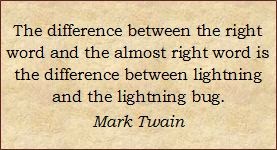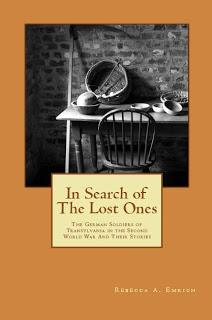
Guest Blogger Judy Croome: Writers, What Are You Really Saying?
October 22, 2014
 When a writer trawls through her pages, carefully removing a word here, or changing another word there, how does she know which word to delete and which new word to use? What makes one word more suited to this sentence, but not to that sentence?
When a writer trawls through her pages, carefully removing a word here, or changing another word there, how does she know which word to delete and which new word to use? What makes one word more suited to this sentence, but not to that sentence?
 A word of warning, though, about the importance of denotation versus connotation. In the quest to avoid repetition of a particular word in your writing, avoid unfamiliar words. Be sure you fully understand the different layers of meaning before using your thesaurus to look up ten different ways to say the same thing.
A word of warning, though, about the importance of denotation versus connotation. In the quest to avoid repetition of a particular word in your writing, avoid unfamiliar words. Be sure you fully understand the different layers of meaning before using your thesaurus to look up ten different ways to say the same thing.




What are you really saying?
 When a writer trawls through her pages, carefully removing a word here, or changing another word there, how does she know which word to delete and which new word to use? What makes one word more suited to this sentence, but not to that sentence?
When a writer trawls through her pages, carefully removing a word here, or changing another word there, how does she know which word to delete and which new word to use? What makes one word more suited to this sentence, but not to that sentence?Some writers, looking authorial and serious, may say that it takes years of practice and some innate magical writer’s gift to know how to choose the right word. The simple answer, though, lies in understanding the difference between the denotation and connotation of the words you use.
Look at these two sentences:
-
The man was imprisoned for two years.
-
The man was detained for two years.
They say the same thing, don’t they? They provide the reader with the exact same data about a certain man. Yet one gains the subtle impression that there is, after all, a difference.
That difference lies in the use of the words “imprisoned” versus “detained”.
Let’s look up the dictionary meaning of both words.
Imprison: to confine; shut up; restrain.Detain: to keep in confinement or under restraint.
That means the same thing, doesn’t it? Well, yes. The literal meaning, or denotation, of both words does mean essentially the same thing.
But what about the connotations, or associated ideas, that have attached themselves to each word?
In most reader’s minds, the word “imprisoned” conjures up the image of a person who is guilty of a criminal act, such as robbery or murder. There is a negative association with this word.
The word “detained”, on the other hand, carries with it the suggestion of political oppression, giving the reader a more sympathetic, or positive, association with the man’s activities.
Why would one writer use “imprisoned” and another writer use “detained”? Because they have different agendas. A right-wing journalist writing a political editorial may use the word “imprisoned” to refer to a political activist. This imprints in the reader’s mind that the man is a guilty criminal and a possible danger to society. A liberal journalist would use the word “detained” with its implications of wrongful incarceration for political reasons. Same meaning, different connotation.
The truth, though, is that no word is completely free of either its denotative or its connotative message.
Take a snake, for example.
To all readers the denotative meaning is “any reptile of the suborder Ophidia (or Serpentes), typically having a scaly cylindrical limbless body, fused eyelids, and a jaw modified for swallowing large prey: includes venomous forms such as cobras and rattlesnakes, large non-venomous constrictors (boas and pythons), and small harmless types such as the grass snake
To many people, however, the connotative meaning of a snake is that it signifies danger, temptation or evil.
A writer who wants to perfect her craft will also be aware that there is another sub-layer to the connotative meanings of words. This is the mythical connotation of words and images that varies according to the historical culture of a reader. The framework of the reader’s world view will add his own interpretation of what he reads. Each reader will have a different veil of perception colouring his personal understanding of any words or images. This veil is woven from the threads of all the cultural, social, family and personality aspects that make up that specific reader’s inner world.
Back to our snake example. A snake may imply evil to a Christian reader; the kundalini, or natural energy of the Self, to a Hindu reader; and to a reader with a medical background, the snake – as the ancient symbol of Asclepius the saviour-healer of Ancient Greece – could represent healing and wisdom.
 A word of warning, though, about the importance of denotation versus connotation. In the quest to avoid repetition of a particular word in your writing, avoid unfamiliar words. Be sure you fully understand the different layers of meaning before using your thesaurus to look up ten different ways to say the same thing.
A word of warning, though, about the importance of denotation versus connotation. In the quest to avoid repetition of a particular word in your writing, avoid unfamiliar words. Be sure you fully understand the different layers of meaning before using your thesaurus to look up ten different ways to say the same thing.If you are talking about a “homeless person”, you will have several alternatives: vagrant, hobo, bum, free spirit, derelict, wino, king of the road, bag lady, displaced person, refugee, street urchin…the list goes on. But, while all of these denote the same object (a homeless person), each word gives a very different image to your reader because their connotations vary.
Experienced writers thus choose words both for what they actually mean (their denotation) and for what they suggest (their connotation). The careful writer thinks of how she can influence a reader’s emotional response to a character or a scene with the precise choice of word.
So, the next time you find yourself worrying about which word to use, ask yourself: what does this word mean and what does it imply? Or, what do I want it to imply?
Only then can you decide which word is the correct one to use for what you really want to say to your readers.
For more writing tips visit Judy Croome on her blog, or twitter.
Previous
The Kindness of Strangers
You May Also Like

In Search of The Lost Ones: Reviews and Other Matters of Publishing and Writing
May 3, 2012
What Happens If I Improve My Writing And Write a Good Blog Post
May 10, 2012

One Comment
Judy Croome | @judy_croome
Hi Rebecca, thanks for featuring me as a guest blogger on your blog. I hope your readers find the article useful 🙂
Judy Croome, South Africa